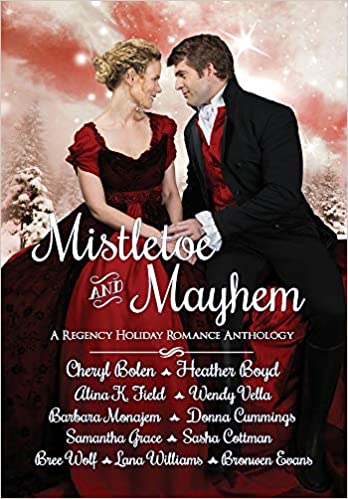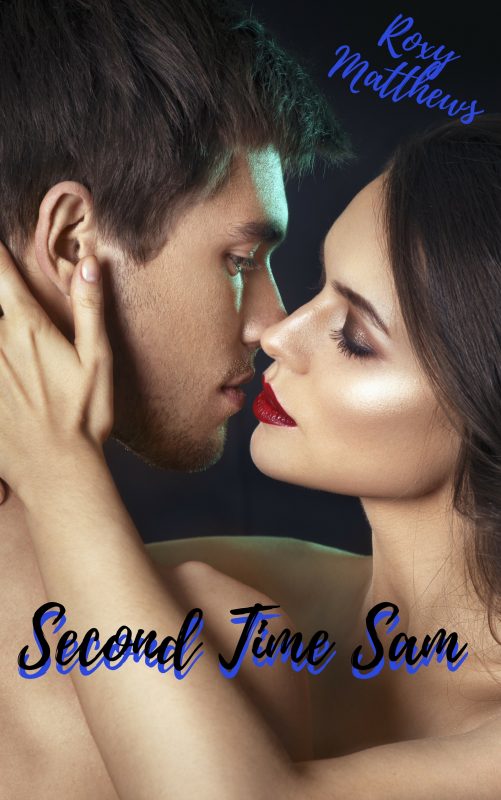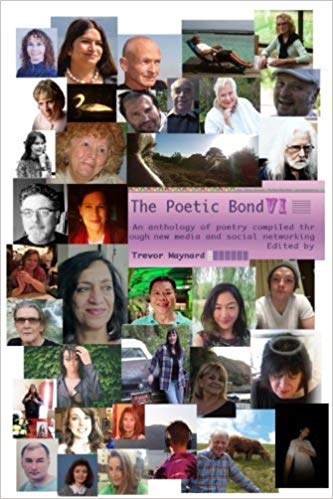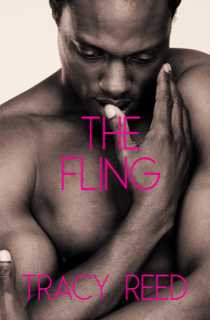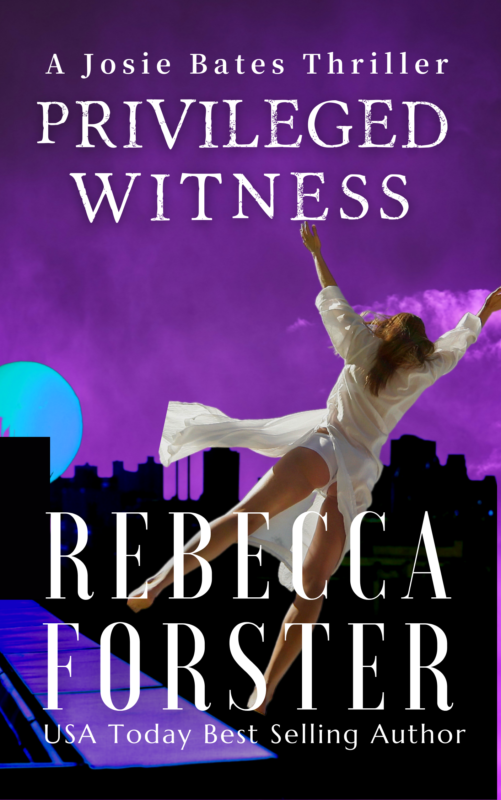Linda McLaughlin: January Featured Author
January 1, 2018 by marianne h donley in category Featured Author of the Month tagged as January Featured Author, Linda McLaughlin

Linda McLaughlin grew up with a love of history fostered by her paternal grandmother and an incurable case of wanderlust inherited from her father. She has traveled extensively within the United States and has visited Mexico, Canada, & Australia. A lifelong dream came true with a trip to England where she was able to combine sightseeing with research for her novels. A native of Pittsburgh, she now lives in Southern California. She loves transporting her readers into the past where her characters learn that, in the journey of life, love is the sweetest reward.
She also writes steamy romance under the name Lyndi Lamont.
website: http://lindalyndi.com
blog: http://lindalyndi.com/reading-room-blog/
Twitter: https://twitter.com/LyndiLamont
News Flash: e-Books Older Than You May Think by Linda McLaughlin
August 16, 2017 by Linda McLaughlin in category The Romance Journey by Linda Mclaughlin tagged as Amazon, e-books, Janet Cornelow, Kindle, Linda McLaughlin, Project GutenburgA few weeks ago, I wrote a blog post about my preference for e-books over print. In it, I talked about reading my first e-book in 1999. Some of the commenters were amazed to hear that (so young) and author Alina K. Field suggested I write about e-book history. This blog post is a revised version of one I wrote in three years before.
News flash: e-books have been around since at least 1971 when Project Gutenberg started digitizing public domain works. The US Declaration of Independence was the first document chosen.

My dear departed friend Janet Cornelow reading on her eBookwise, 2006
I started reading e-books in 1999 on my laptop. I’d gone to the Romance Writers of America conference in Chicago and signed up to moderate a panel. By sheer serendipity, I was assigned to moderate the e-book panel presented by Janet Lane Walters and the late great Jane Toombs, two true e-book pioneers. I came away with an interest in e-books and a couple of samples on 3 1/2 inch diskettes. (Remember those?)
Back home, I read the books on my laptop using either Adobe Acrobat or an Internet browser, depending on whether the format was PDF or HTML. I’m a voracious reader and book buyer, and the house was already full of print books. The idea of being able to store book on my computer seemed like a godsend to me. A way to buy and hoard store books without cluttering my already cluttered house. I was hooked!
Commercial e-books were in their infancy, but dozens of small publishers sprang up, most of them no longer in business. Ellora’s Cave was the best known of the early small e-book houses. My publisher, Amber Quill Press, started in 2002 and closed its doors in 2015. Romance readers got hooked early, and small presses deserve credit for reviving the paranormal romance genre, which NY had lost interest in, for feeding the erotic romance craze and for pioneering gay erotic romance.
While e-book readers were a tiny minority at first, the growth became explosive, often 50% in a year, though sadly has slown since. The numbers didn’t start to hit critical mass until Amazon got into the game with the Kindle 1 in late 2006, though Sony gets the credit for having the first available e-ink reader. There were commercial e-readers available before the Sony Reader and the Kindle: the original Rocket e-book reader, its successor the RCA Gemstar 1100, requiring a stylus to make selections. (You had to press a lot harder than on a tablet.) Also, books could be read on the little PDAs, like the Palm Pilot and Pocket PC. I read a lot on my Sony Clie.

Kindle 1
My RCA Gemstar gave out shortly before the release of the Kindle1. I briefly considered getting a Sony reader, but decided that Amazon had already shown a commitment to the book business which I didn’t see Sony making, so decided to order the Kindle, despite the $399 price. I loved it from the beginning. There was no touch screen, just a wheel for scrolling up and down plus the keyboard. It seems unwieldy now.
Amazon’s real innovation, the one that made it the leader in the industry, was the one-click purchase followed by wireless delivery directly to your device. No more having to buy from the publisher’s site–with different accounts at each site, were we dedicated ebook readers or what?–download the books to your computer and then side load your e-books using the USB cable. Sadly, one-click ordering tolled the death knell of many small publishers.
One-click buying took e-book reading beyond the limits of the technologically proficient among us. The ability to download a sample before buying was (and still is) another popular feature. I was an early adopter of the Kindle 1 and still have my device, though it’s no longer in use. I’ve moved on to a Kindle Keyboard and the iPad.
Do you read e-books? If so, when did you start and what device(s) do you use?
Linda McLaughlin
Website: https://lindalyndi.com
2 0 Read moreColor-blind Bots & Cloudy Cleavage: #Facebook Ads by @Lyndi Lamont
July 16, 2017 by Linda McLaughlin in category The Romance Journey by Linda Mclaughlin tagged as Facebook Ads, Linda McLaughlin, Lyndi LamontThis last week, I took a Facebook for Business Made Easy 5-Day Challenge led by Sherri-Lee Woycik of Social Media Minder. It was wonderful, intensive, and my Facebook pages have never seen so much activity!
One of the lessons involved boosting a post from your Facebook page. I was able to successfully boost one post at my Lyndi Lamont Page. (I’m always happy to get new likes and engagement. Hint, hint.)
Then I tried to boost one from my Linda McLaughlin page. This is what the ad looked like:

Seems pretty straightforward, right? Easy question plus two images. Should be a no brainer.
So when it wasn’t approved, I was surprised. I delved into why FB found the post unacceptable and got this mind-boggling answer.

What the heck?
After Sherri-Lee got done laughing, she explained that the ads are checked by bots, not real people. Apparently the bot is somewhat color-blind since it seemed to mistake my sunrise for naked skin, and the clouds surrounding the moon for cleavage? Or something like that.
So much for artificial intelligence, LOL.
Needless to say, I sent an appeal and I’m waiting for a human being to get around to looking at it.
In other news, my latest release, Lily and the Gambler, is on sale for 99 cents for the summer at at Amazon Kindle, BN/Nook, Kobo and Smashwords.

Also, I’m participating in the Smashwords Summer/Winter Sale through July 31. Rogue’s Hostage and Lady Elinor’s Escape are now half off at Smashwords through July 31. Don’t forget to use the code SSW50 at checkout.
And all my Lyndi Lamont novellas are free at Smashwords through the end of the month! How To Woo… A Reluctant Bride, Ilona’s Wolf and Marooned. Don’t forget to use the code SSW100 at checkout.
Hope you’re having a great summer. Mine has been hectic and productive as well as fun.
Linda McLaughlin
aka Lyndi Lamont
http://lindalyndi.com
Pitfalls of Research: Too Much vs. Too Little by @LyndiLamont
May 16, 2017 by Linda McLaughlin in category The Romance Journey by Linda Mclaughlin tagged as Linda McLaughlin, Regency romance, research, societyRecently I listened to a perfectly delightful Regency romance on audio, but some obvious errors nagged at me and got me to pondering which is worse, too much research or too little?
 Those of us who write books that require extensive research are always advised to not let the research show. Weave it as seamlessly as possible into the narrative. That makes perfect sense, though it isn’t easy to do. But what about too little research? That’s when errors become glaring enough that some readers, esp. the ones who also write, are pulled out of the story, saying “Wait a minute, that’s not right.”
Those of us who write books that require extensive research are always advised to not let the research show. Weave it as seamlessly as possible into the narrative. That makes perfect sense, though it isn’t easy to do. But what about too little research? That’s when errors become glaring enough that some readers, esp. the ones who also write, are pulled out of the story, saying “Wait a minute, that’s not right.”
Sometimes it’s a matter of historical characters acting or speaking in modern fashion. This can be one of the most glaring problems. Then there is the matter of social mores of the time, which vary from one period to the next.
One of the biggest traps novelists can fall into is writing historical characters with 21st century mores. And nothing can make the reader want to throw a book across the room quicker. This especially applies to women. The double standard still exists, but it was much greater in previous centuries. A young woman’s reputation was golden.
War and social unrest have always upset the normal patterns of life, and social mores tend to fall by the wayside during such periods. Still, a historical female character who shows no regard for her reputation isn’t believable unless she’s already a fallen woman and has no reputation to lose.
 Personally, I don’t necessarily mind a heroine who flaunts society’s rules; I just need to believe that she knows what she is doing and is well motivated in her choices. The woman who doesn’t understand the consequences of her actions strains credibility. Women had a lot more to lose in the not-so-good old days.
Personally, I don’t necessarily mind a heroine who flaunts society’s rules; I just need to believe that she knows what she is doing and is well motivated in her choices. The woman who doesn’t understand the consequences of her actions strains credibility. Women had a lot more to lose in the not-so-good old days.
In the book in question, the problem seemed to be more one of the author not understanding how the social season worked. Societal rules were much more stringent, esp. among the upper classes. It was one way the maintained their air of privilege. It all seems ridiculous to us now, but the aristocracy took these things very seriously.
 In general, a young lady could not be out in society unless she had been presented at court and made her bow to the Queen. In my Regency romance, Lady Elinor’s Escape, Lady Elinor is hiding out in a dress shop, pretending to be a seamstress, which means she could not also be out in society. But we writers find ways around details like that. The one ball scene in the book is a masquerade ball she attends only because the shop owner retrieved a discarded invitation from the trash. As long as Elinor leaves before the unmasking at midnight, she feels the risk is worth it.
In general, a young lady could not be out in society unless she had been presented at court and made her bow to the Queen. In my Regency romance, Lady Elinor’s Escape, Lady Elinor is hiding out in a dress shop, pretending to be a seamstress, which means she could not also be out in society. But we writers find ways around details like that. The one ball scene in the book is a masquerade ball she attends only because the shop owner retrieved a discarded invitation from the trash. As long as Elinor leaves before the unmasking at midnight, she feels the risk is worth it.
In writing, like Regency society, it’s best to know the rules before you (or your characters) break them.
So too much research or too little? I’m enough of a history freak to prefer too much research showing to wondering if the author did any at all. What do you think?
Linda McLaughlin
aka Lyndi Lamont
http://lindalyndi.com
World Book Day: So What do You #LovetoRead #amreading
April 23, 2017 by Linda McLaughlin in category Events, The Romance Journey by Linda Mclaughlin tagged as #amreading, Authors, book, Linda McLaughlin, reading, World Book DayIn 1995 UNESCO (the United Nations Educational, Scientific and Cultural Organization) chose April 23rd as World Book Day and Copyright Day to celebrate books and authors. April 23, 1616 is the date when both William Shakespeare, Miguel Cervantes, and several other authors whose names are not household words all died.
 As a lifelong, avid reader, I love the idea of a special day to celebrate love of reading. I recently saw a musical version of Little Women at a community theatre production and was reminded of how much I had loved the book when I was a child. I clearly remember one day when I was re-reading the book and sobbing over Beth’s death. My mother asked in an exasperated tone, “Why do you read that book if it makes you cry?” “It’s so good,” I sobbed. I lost count of how many times I read the book but it had to be at least ten.
As a lifelong, avid reader, I love the idea of a special day to celebrate love of reading. I recently saw a musical version of Little Women at a community theatre production and was reminded of how much I had loved the book when I was a child. I clearly remember one day when I was re-reading the book and sobbing over Beth’s death. My mother asked in an exasperated tone, “Why do you read that book if it makes you cry?” “It’s so good,” I sobbed. I lost count of how many times I read the book but it had to be at least ten.
Like a lot of authors, love of reading led me to decide I wanted to be a writer, something my parents actively discouraged. I remember coming home in 9th grade with the results of the Kuder Preference Test, which all students were required to take. My results said I had interests similar to teachers, librarians and writers. My folks very quickly made it clear to me that only two of those vocations were acceptable. None of us realized that many writers start out writing around their full-time job.
I decided to become a librarian. At least that way I could be surrounded by books all day. Little did I know my first job would be as a technical librarian, surrounded by books on electronics which I could not begin to understand! It was very odd to preside over a library of books where I could only understand the dictionary and encyclopedia! Later I switched to public libraries and enjoyed my job a lot more.

Anaheim Public Library where I used to work.
While I write romance and love to read more romance, my reading tastes are actually pretty eclectic. I belong to a readers group that chooses a topic rather a book every month. This month we’ve been reading books with a Psychology element. I found three good novels to read: Z: A Novel of Zelda Fitzgerald by Therese Anne Fowler; Silver Linings Playbook by Matthew Quick; and I Never Promised You a Rose Garden by Joanne Greenberg. All were excellent. Next month: Historical Fiction, one of my favorite topics.
What have you been reading lately?
Linda
 Linda McLaughlin grew up with a love of history fostered by her paternal grandmother and an incurable case of wanderlust inherited from her father. She has traveled extensively within the United States and has visited Mexico, Canada, Australia and Europe. She now lives near the ocean in Orange County, California.
Linda McLaughlin grew up with a love of history fostered by her paternal grandmother and an incurable case of wanderlust inherited from her father. She has traveled extensively within the United States and has visited Mexico, Canada, Australia and Europe. She now lives near the ocean in Orange County, California.
Linda writes historical and Regency romance under her real name and spicier romance under the pseudonym Lyndi Lamont.
Connect with her at her website or on Twitter @LyndiLamont.
2 0 Read moreAffiliate Links
A Slice of Orange is an affiliate with some of the booksellers listed on this website, including Barnes & Nobel, Books A Million, iBooks, Kobo, and Smashwords. This means A Slice of Orange may earn a small advertising fee from sales made through the links used on this website. There are reminders of these affiliate links on the pages for individual books.
Search A Slice of Orange
Find a Column
Archives
Featured Books
MISTLETOE & MAYHEM: A REGENCY HOLIDAY ROMANCE ANTHOLOGY
There’s no Christmas like a Regency Christmas spent under mistletoe! New York Times Bestselling author Cheryl Bolen and friends invite you to discover true love in eleven deliciously steamy romances in this all-new holiday collection.
More info →THE FLING
Every woman is beautiful. Sometimes it just takes the right man to show you just how beautiful you are.
More info →PRIVILEGED WITNESS
The beautiful wife of a senate candidate is dead; his disturbed sister is accused.
More info →Newsletter
Contributing Authors
Search A Slice of Orange
Find a Column
Archives
Authors in the Bookstore
- A. E. Decker
- A. J. Scudiere
- A.J. Sidransky
- A.M. Roark
- Abby Collette
- Alanna Lucus
- Albert Marrin
- Alice Duncan
- Alina K. Field
- Alison Green Myers
- Andi Lawrencovna
- Andrew C Raiford
- Angela Pryce
- Aviva Vaughn
- Barbara Ankrum
- Bethlehem Writers Group, LLC
- Carol L. Wright
- Celeste Barclay
- Christina Alexandra
- Christopher D. Ochs
- Claire Davon
- Claire Naden
- Courtnee Turner Hoyle
- Courtney Annicchiarico
- D. Lieber
- Daniel V. Meier Jr.
- Debra Dixon
- Debra H. Goldstein
- Debra Holland
- Dee Ann Palmer
- Denise M. Colby
- Diane Benefiel
- Diane Sismour
- Dianna Sinovic
- DT Krippene
- E.B. Dawson
- Emilie Dallaire
- Emily Brightwell
- Emily PW Murphy
- Fae Rowen
- Faith L. Justice
- Frances Amati
- Geralyn Corcillo
- Glynnis Campbell
- Greg Jolley
- H. O. Charles
- Jaclyn Roché
- Jacqueline Diamond
- Janet Lynn and Will Zeilinger
- Jaya Mehta
- Jeannine Atkins
- Jeff Baird
- Jenna Barwin
- Jenne Kern
- Jennifer D. Bokal
- Jennifer Lyon
- Jerome W. McFadden
- Jill Piscitello
- Jina Bacarr
- Jo A. Hiestand
- Jodi Bogert
- Jolina Petersheim
- Jonathan Maberry
- Joy Allyson
- Judy Duarte
- Justin Murphy
- Justine Davis
- Kat Martin
- Kidd Wadsworth
- Kitty Bucholtz
- Kristy Tate
- Larry Deibert
- Larry Hamilton
- Laura Drake
- Laurie Stevens
- Leslie Knowles
- Li-Ying Lundquist
- Linda Carroll-Bradd
- Linda Lappin
- Linda McLaughlin
- Linda O. Johnston
- Lisa Preston
- Lolo Paige
- Loran Holt
- Lynette M. Burrows
- Lyssa Kay Adams
- Madeline Ash
- Margarita Engle
- Marguerite Quantaine
- Marianne H. Donley
- Mary Castillo
- Maureen Klovers
- Megan Haskell
- Melanie Waterbury
- Melisa Rivero
- Melissa Chambers
- Melodie Winawer
- Meriam Wilhelm
- Mikel J. Wilson
- Mindy Neff
- Monica McCabe
- Nancy Brashear
- Neetu Malik
- Nikki Prince
- Once Upon Anthologies
- Paula Gail Benson
- Penny Reid
- Peter J Barbour
- Priscilla Oliveras
- R. H. Kohno
- Rachel Hailey
- Ralph Hieb
- Ramcy Diek
- Ransom Stephens
- Rebecca Forster
- Renae Wrich
- Roxy Matthews
- Ryder Hunte Clancy
- Sally Paradysz
- Sheila Colón-Bagley
- Simone de Muñoz
- Sophie Barnes
- Susan Kaye Quinn
- Susan Lynn Meyer
- Susan Squires
- T. D. Fox
- Tara C. Allred
- Tara Lain
- Tari Lynn Jewett
- Terri Osburn
- Tracy Reed
- Vera Jane Cook
- Vicki Crum
- Writing Something Romantic
Affiliate Links
A Slice of Orange is an affiliate with some of the booksellers listed on this website, including Barnes & Nobel, Books A Million, iBooks, Kobo, and Smashwords. This means A Slice of Orange may earn a small advertising fee from sales made through the links used on this website. There are reminders of these affiliate links on the pages for individual books.













